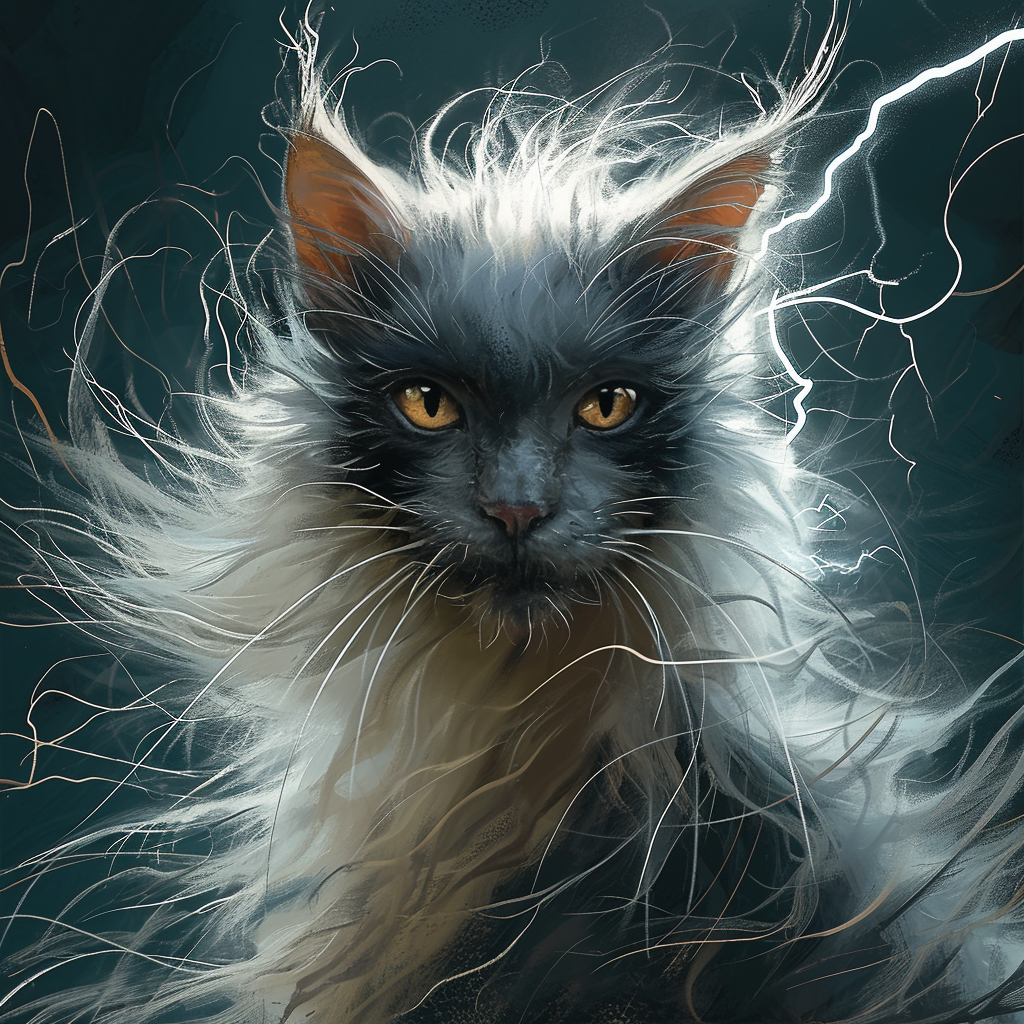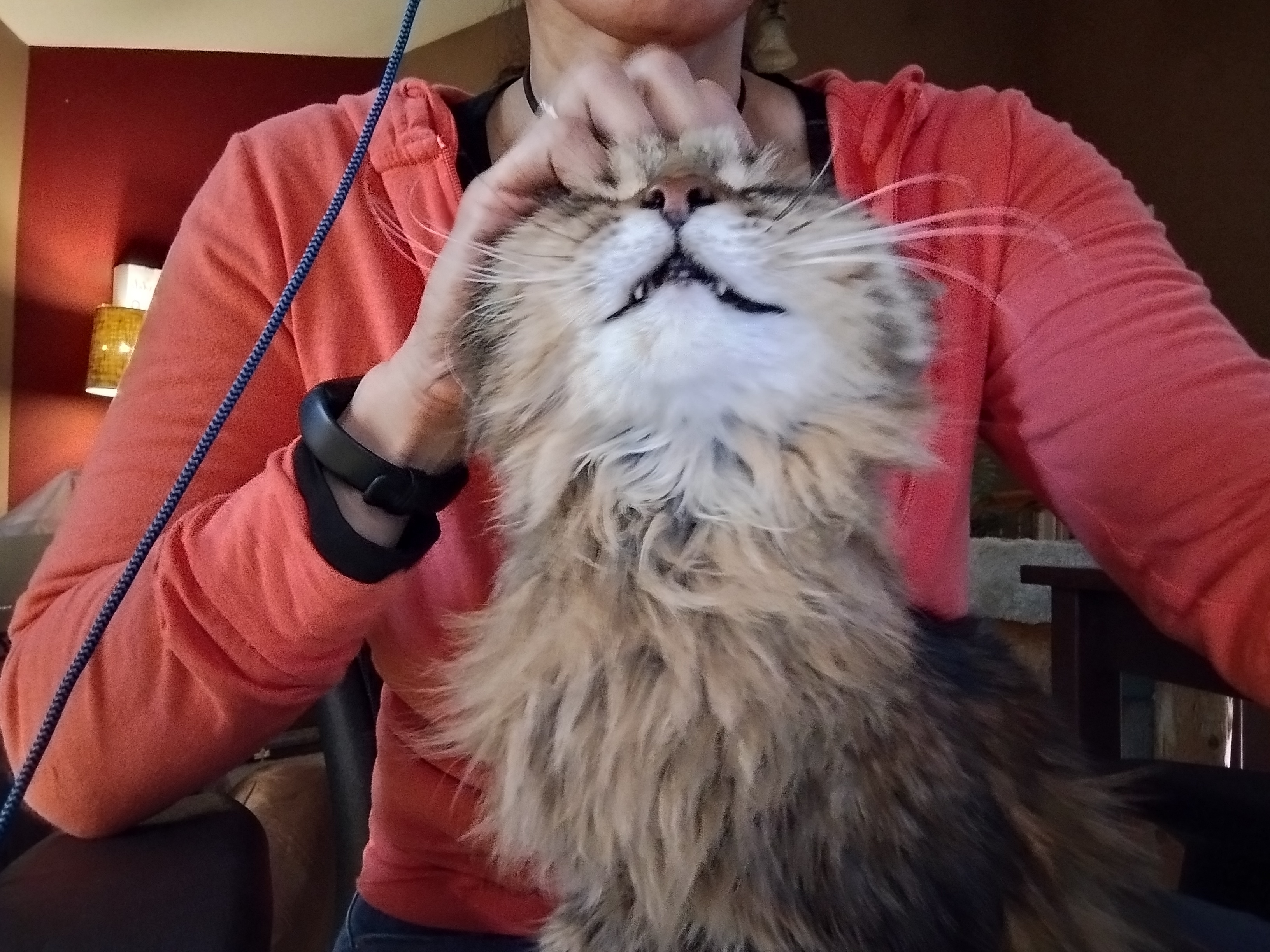Even better is when that one guy is the DM
I try to win as the DM.
“Winning” in this case being that everyone had a good time.
You sound like a good DM
WIN AT ALL COSTS
FUN IS MANDATORY AT MY TABLE
I SPECIFICALLY REQUESTED IT
So says Friend Computer.
Oh, you don’t want to take a path with an obvious trap? Well a level 20 red dragon swoops from the sky and attacks your level 1 party. Roll initiative!
And as a player who wants to do that too, I keep in mind that the DM is also playing the game and wants to have a good time.
Thank you! This is something that many people forget, both players and DMs.
It’s really the crux of a lot of issues with D&D, from table problems to game problems to publisher problems.
I’ve been playing in a game with my 11 year old nephew as the dm for the last few months and he’s like this. He’s great at the storytelling aspects of it but he gets pissed when we try to strategize before a fight and I somehow get critted at the beginning of every encounter… I ignore it because he’s a kid and I want to support him but I’d be lying if I said it wasn’t getting old.
Talk to him till he is still young and malleable. People sometimes transform into the worst and if that happens only thing I can do is walk away with regret I didn’t nudge them before
I talk to my brother about it and he’s working with him but I don’t feel comfortable being too hard on him myself. He doesn’t have a lot of interests and I don’t want to be the one that screws this one up for him.
One way you could maybe handle it is by discussing fudging roles in a way that isn’t directed at him. Just talk to the group out loud about the temptation to fudge rolls, but that it takes away from the fun of the game for everyone. He’ll hear it and likely understand, but it won’t be calling attention to him.
I agree with you, but there have absolutely been games (specifically in Pathfinder 1E) that I had to approach from a mindset of trying to win. PCs can get so ridiculously overpowered in that game that it can be difficult to balance combat properly and sometimes requires you to pull out all the stops to make combat encounters engaging.
Ugh, I’ve played with DMs who think it’s a game between them and the players, where their objective is to kill all the players without making it obvious that they’re doing that. Look, man. You’re literally God of this world, you don’t need to try to prove that you’re tougher. Frickin weirdos.
My sister-in-law is that guy. That’s why we don’t like playing board games or doing escape rooms with her. Oh, and also because she’s a bitch and is divorcing my brother.
Wife of a friend as well. She’ll bend and “interpret loosely” every rule in her favor, but if someone else is doing the same, she gets mad and thinks it’s cheating.
Sounds like my brother. Everyone else playing thinks the intent of the rules are obvious, even if the wording is ever so slightly vague. So every time we have to go look up an interpretation on some forum, and he’s wrong every. single. time. D:
Oof, I have a friend like this. Wins 80% of all board games he’s in but never asks himself why. Buddy it’s because were just trying to have a good time and it would seriously fuck with the mood to actually try to stop you from interpreting things in your favour every single time
For me (though this depends on the game and the people) everyone trying their hardest to win is part of the fun of board games. That said, trying to manipulate the rules to essentially chest is not in the spirit of the game. Everyone should be playing in the spirit of the rules and trying to win fairly. If some people just aren’t trying then it’s not very fun.
This is all of course assuming that it’s a board game made to try to win on, not the typical American board games that are 90% random chance. Those just suck anyway, so you might as well just fuck around and have fun with it.
Some people, like my friend, don’t even consciously realise they’re doing this kind of “challenge the integrity of the rules in my favour” thing. Sometimes this takes the form of other players graciously saying they won’t ask for an “undo” and these kinds of people not reading the room and asking for it themselves. You can’t just say no, else it risks an argument. Other than such caveats, yes, assuming people are trying to win is a fun way to play things.
Another thing is, like, he miscounts points and such at the same rate as anyone else would, but somehow the miscount is in his favour 80% of the time. I don’t really get how this happens on a psychological level, especially with an otherwise really nice person.
I think about this, or a related problem, a lot.
You have a group of players
- the first player wants tactics and strategy. They’re like “I’ll run into the room and dodge to draw their attention. Then you can drop a wall of fire or something while I have their attention”. Combat is a problem to be solved using the fewest resources and lowest risk.
- second player wants to cast fireball. He wants to do cool flashy things. He’s not here for resource management or long term strategy.
- third player wants to pet the giant spiders, open a lemonade stand in the dungeon, and have some beach episodes
- fourth player’s just here to hang out with friends
Each person in that list probably thinks the one above him is “playing to win”.
Second guy thinks the first is trying too hard about tactics and strategy. Third thinks the second is trying too hard about combat and damage. The fourth thinks the third is spending too much time roleplaying.
It’s fine if your group is all the same type. But when it’s mixed, it’s bad.
Mixed can be better. Rolling With Difficulty has a mixed group of players and it’s awesome. Red is an expert on tropes and always knows exactly what the DM is trying to do. Sophia has dice blessed by the gods and always pushes the big red button. Noir has a habit of dropping impassioned monologues that completely change the trajectory of the story. And Wally has absolutely wild builds that let them go up against incredibly powerful enemies.
If the party were all like Red, there wouldn’t be much momentum coming from the players. All Sophias, and nobody would actually understand what’s going on. All Noirs, and you get the Star Wars prequels. All Wallys, and the party would always play it safe and be boring. But with a mix, everyone shines.
I accept that this can work sometimes. I’m just bitter about having players that don’t know how the game works or are just bad at it.
My current group is better.
Had me until your last sentence.
It’s always going to be mixed, to some degree. The challenge is making it work anyway.
In my opinion and experience, when it’s mixed it’s better. As long as you have a good group where you don’t have any players that complain whenever someone plays in a way they don’t like.
Maybe sometimes. But as player type 1 in that set I was routinely really annoyed at player 2 and 3. We didn’t have a type 4, but I can imagine they might’ve gotten on my nerves too.
They also weren’t happy with me. One player would often create exchanges like
- them: “I move around the corner and shoot the monster. The one that’s 100’ away, yep.”
- them: “ok i’m done”
- me: “…aren’t you going to move back?”
- them: “what?”
- me: “Move back around the corner”
- them: “what? I already moved”
- me: (You’ve been playing this game for like a year now…) “You get 30’ of movement. You used 10’. You can move back around the corner.”
- them: “Oh. But why?”
- me: “…so they don’t shoot you back.”
- them: “I don’t understand.”
- me: “Where you are standing now, you can see them and they can see you. So you can shoot each other. If you move back where you were, you can’t see each other, and they can’t shoot you on their turn.”
- them: “I don’t see what the big deal is”
The wizard would also just blow spell slots for any excuse, adventuring day be damned. I was kind of peeved the DM gave him a full recharge during the boss fight for “plot reasons”.
In retrospect, the problem was me and it was good I left the group. They’re probably having a lot of fun with their playstyle. Maybe one day I’ll find a good group where everyone understands advanced concepts like “cover”.
Make it roleplay. See, this is why I loved Fourth Edition’s Warlord class.
“Haragrimm, you’ve exposed yourself! Scurry back before they return fire!”
Power gaming is fun if it’s also roleplay.
This is an interesting idea but I think the other player would just be confused and annoyed, out of character.
Some people don’t play the games for tactics. Don’t have the head or interest for it. And that’s fine. I just don’t really want to be at that table if we’re doing stuff that looks like tactical combat.
People who don’t like tactics shouldn’t play D&D. They should play fun and cool games like Monster of the Week or Blades in the Dark. D&D is a wargame first. Tactics are part of the fantasy for D&D, especially if you have a warlord in the party. Why didn’t they put the warlord in 5E? It was an awesome class.
People who don’t like tactics shouldn’t play D&D. They should play fun and cool games like Monster of the Week or Blades in the Dark.
100%. D&D’s main things are tactics and resource management.
But D&D is the mega popular brand that people know, and they often don’t want to learn something else. Even if they don’t actually know D&D’s rules.
I personally like Fate a lot for a simpler ruleset that’s actually flexible and generic. I’ve been running a Fate game for about 20 sessions and it’s been fun, even though the players don’t always remember to spend fate points for story details.
Whenever I get a brand new group of players, I teach them Dungeon World. I tell them it’s like D&D, but easier. This prevents the transformation into a normie, because they will always know that other systems are easy and fun.
I and my fiancee play Pandemic with our friends on occasion. We’ve played the game a lot and know how to do things, and our friends have basically never played it.
I low key hate it that my fiancee doesn’t let our friends do what they want. Instead, she keeps playing for them: “Ok you should go there and cure that one block and use that card to fly there so you (points next person) can trade that card to him next turn”. Our friends just have a blank state and go “ooohhookaay” and do it and have zero idea why.
I try to tell her that just let them play its fine if it is dumb decision, its fine if we lose. But she keeps doing it anyway! I always try to “beat her to the punch” and ask our friends what they want to do and if they don’t know maybe give few possibilities and let them decide and hope that my fiancee doesn’t interrupt lol.
You’re a good game ambassador. Keep trying.
Allowing for newer gamers to actually engage with the system is what is fun for them, same as all players. They won’t have fun just watching someone who knows what to do play their turn for them. Idk if it would work, but it might be worth trying instituting a rule between your partner and you before a game night starts that says the more experienced players will only offer advice when asked? It might help, just spit balling.
My personal strategy I liked to do when I showed new people pandemic was asking what people around the table thought was important at key moments, as well as being vocal about the processes in the game. That way there is 2 way active discussion. If I can realize from those conversations that less experienced players are missing something (like it’s been a little too long since seeing an epidemic card) I make sure to state that during my “what I think is important” contribution.
I try to make sure I’m not using language that makes it appear that I think my ideas are better than theirs, instead I try to talk as a GM who is making sure everyone knows objective facts about the game state and what may happen.
In my experience, doing that as well as constantly talking about game state and mechanics for new people such as, “remember, the next time we get an epidemic card (whenever that may be) London is going to outbreak,” shows critical phases of the game that the group should be concerned with, but when it’s worded like that you aren’t putting pressure on the players to do anything about it outright. it still allows them the freedom to say “I don’t think that’s going to sink us, I wanna focus on blah blah blah on my turn.”
Thats seems to be the best technique that I’ve found to take the pressure off of them to listen to the experienced players and fall in line. When the experienced players aren’t dictating a course of action, but rather are stating what is going on and asking what we should do as a group to new players, it allows new players at the table to feel situationally aware and make confident choices because they feel included and like they aren’t missing anything.
(I should point out that your partner shouldn’t be answering you if you ask haha of course they already know. it’s about coercing the newbies into playing rather than watching. not trying to insult, but if your partner struggles with alpha gaming they gotta know that isn’t a question for them to answer)
I wish you luck.
There’s nothing better than showing someone that game and they take a risk (either intentionally or not), it blows up in their face, and they have to scramble to recover and just BARELY scrape by with a ton of luck.
This is part of why I can’t enjoy pandemic. (The other big part being we had a real life pandemic and it was nothing like the game)
Teaching gracefully is a skill I don’t really have. So it’s easy for me to fall into “no, that’s a bad move because XYZ” and most people don’t like that.
You can kind of see this in my other posts in this thread where I would be annoyed at players for making tactical blunders in DND.
At least I recognize this is almost entirely a me problem, and that’s the first step towards not being a total party shitter.
I was stuggling with this a lot (mostly successfully, I hope?) when we were playing Zombicide. None of us knew the game, we were confused by some rules and we got out asses kicked bad in the first tutorial scenario, but having experience from turn based games like X-Com, I felt like I had to bite my tongue a lot during the evening, especially once I realised that the margins for error are much smaller than I expected.
I have a friend who doesnt try to “win” per we, but does everything he can to be “different” than the rest of party. Its usually only mildly annoying.
Usually. We’re starting a Marvel Multiverse campaign, and everyone wants to be spiders for spider verse stuff, but not my friend. My friend wants to be a portal guy. I was like “what about phase spider?” Nah. Just mildly annoying.
Mildly annoying? That’s downright frustrating.
For me, D&D is a collaborative game. Players who go against group can leave.
I mean I kinda feel the same way, but at the same time it was never declared thats what we were doing. Its just we all happened to make them except for him.
Miguel moment

“Oh.”
Is that Satya Nadella in the 2nd to back seat?
That’s his dad
I came buckets
I have a player like this. He always specs out all the options on spreadsheets and tries to find the optimum builds for any RPG we play. Which is fine, but I got really tired of him telling everyone else how to play their characters in D&D that we’ve only been playing other RPGs for the past few years where build optimization is less of a thing.

It’s all perfectly logical to you, isn’t it?
He is giving off that “I’m too much a man to show I’m having fun” vibe.
what, you guys never rawdog the Log Flume?
Pierce Hawthorne
I take the sword of Duquesne!
Really? Maybe i’ll wipe my ass with it and throw it off a cliff.
@The_Picard_Maneuver
I am so grateful I have never played with someone like this











